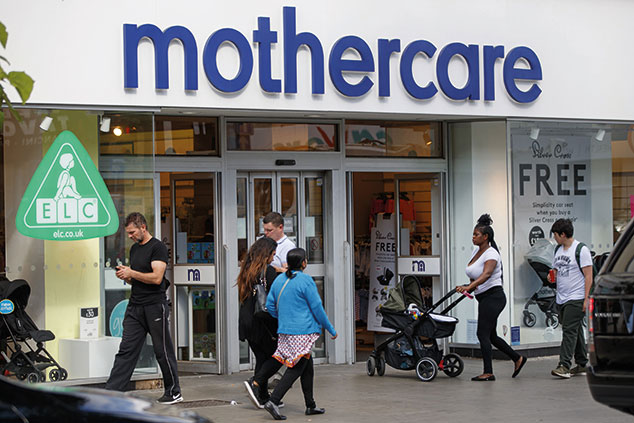
In “one of the most highly anticipated collapses on the high street”, baby-paraphernalia retailer Mothercare is to appoint administrators to its British business, reports Jonathan Eley in the Financial Times. While the listed company will continue to operate, thanks to its profitable international division, its shares still fell by nearly a quarter once the news was announced. While Mothercare still has a high market share in certain areas, supermarkets and online retailers have undercut its prices.
It’s easy to blame a combination of “‘challenging market conditions’, competition from Amazon and the like”, says Sarah Vine in the Daily Mail. However, the truth is that “Mothercare was struggling long before any of these things were a real problem”. It always seems to have been badly managed. As early as 2003 there were reports that “money at Mothercare was so tight bosses had to borrow cash from the tills to pay the wage bill”. While the chain would experience a “brief resurgence” over the next few years, its fate was sealed by the decision to “wildly” expand overseas while closing down city centre stores in favour of “large, faceless out-of-town centres”.
Mothercare’s demise is a case study in how rarely company voluntary arrangements (CVAs), whereby troubled retailers persuade landlords to temporarily accept lower rents, as it recently did, actually work, says Jim Armitage in the Evening Standard. Only 12% of companies involved survive. They “represent the triumph of bosses’ optimism over reality”.